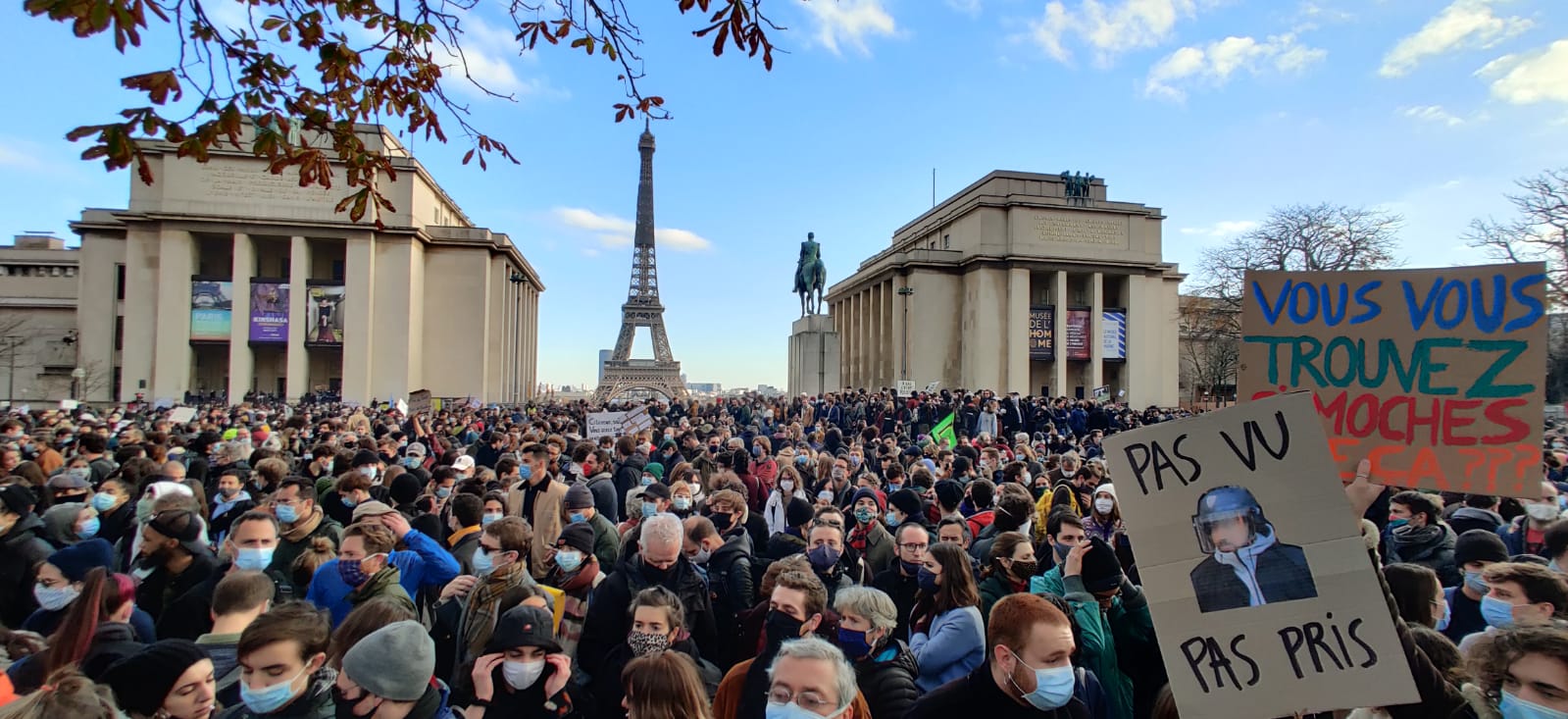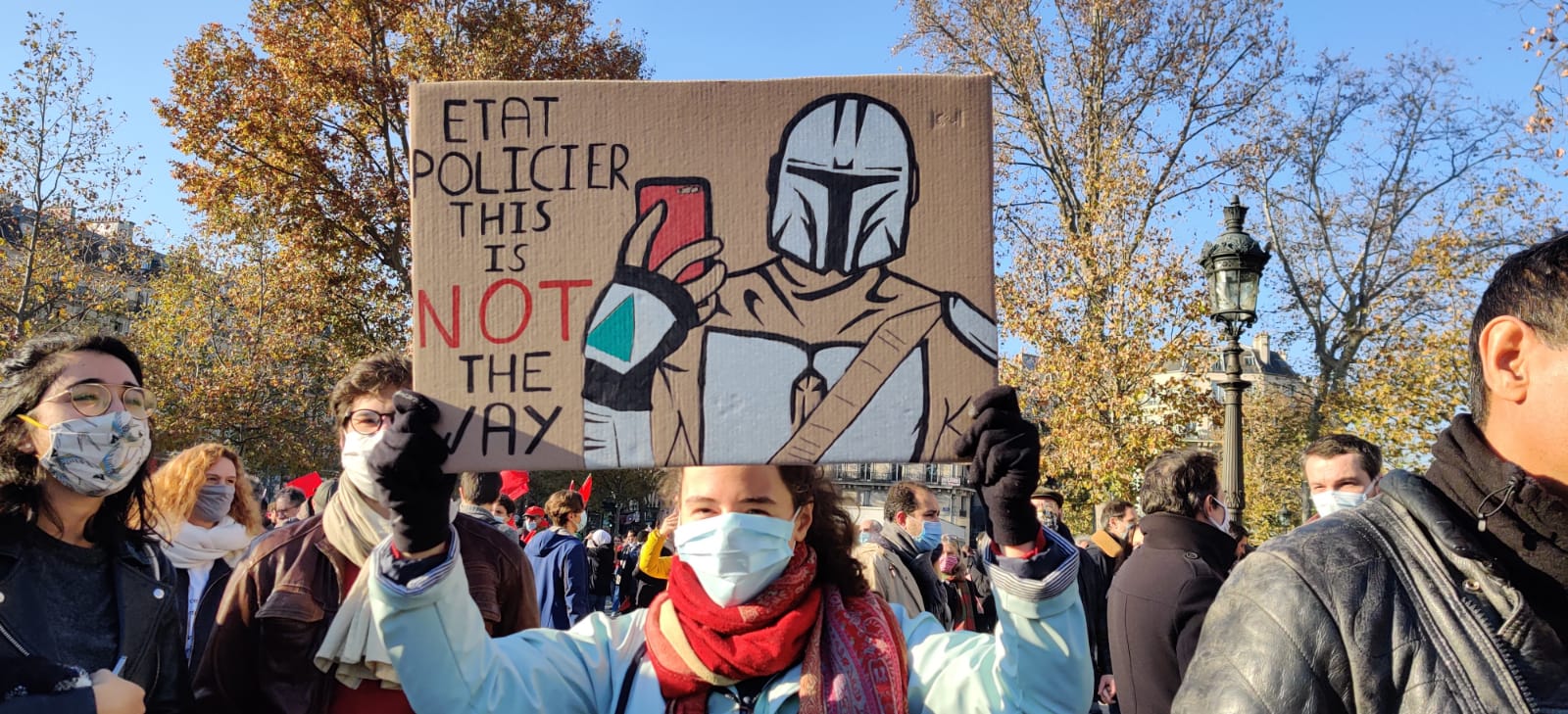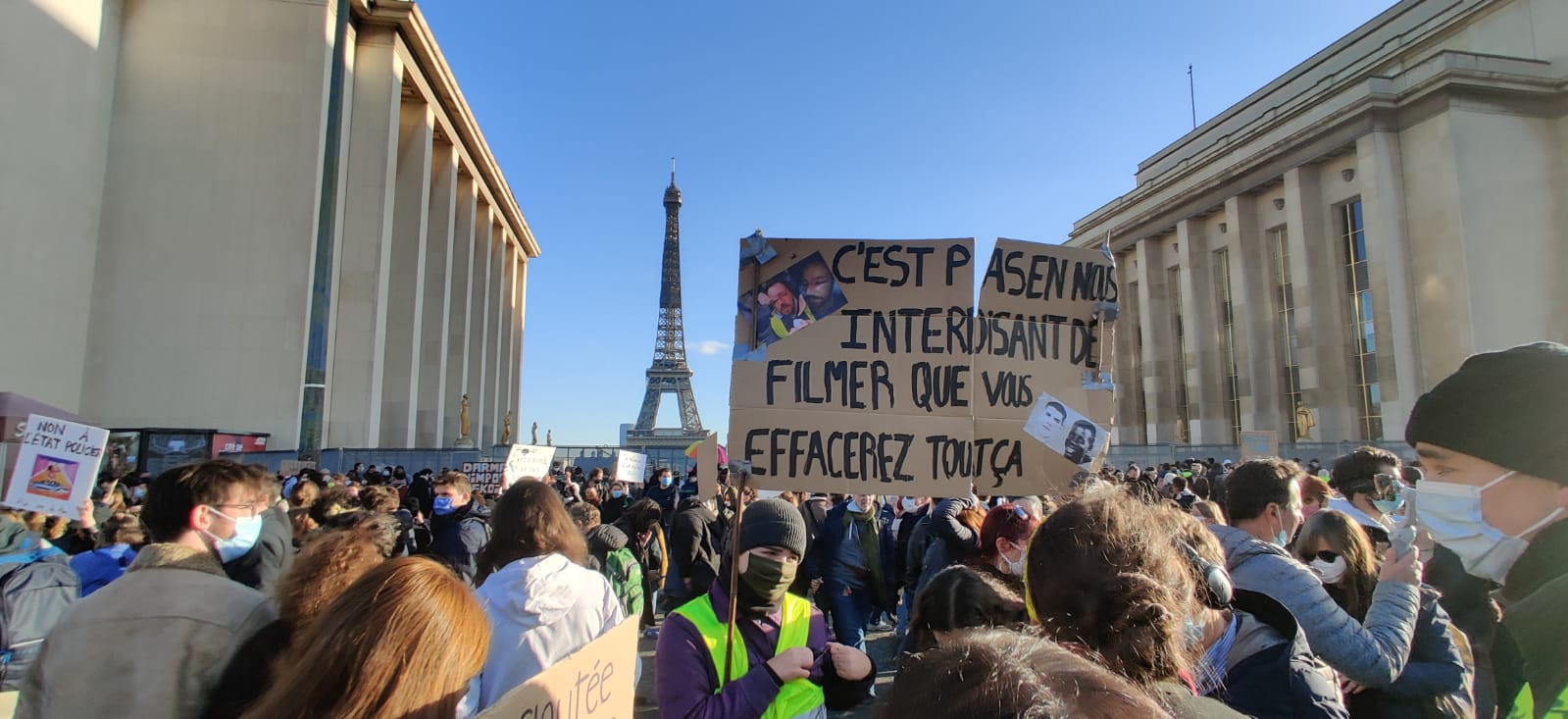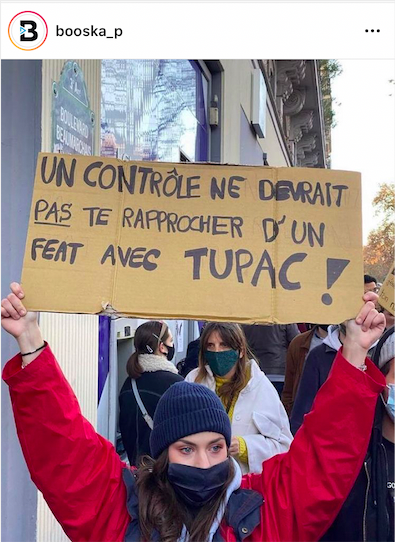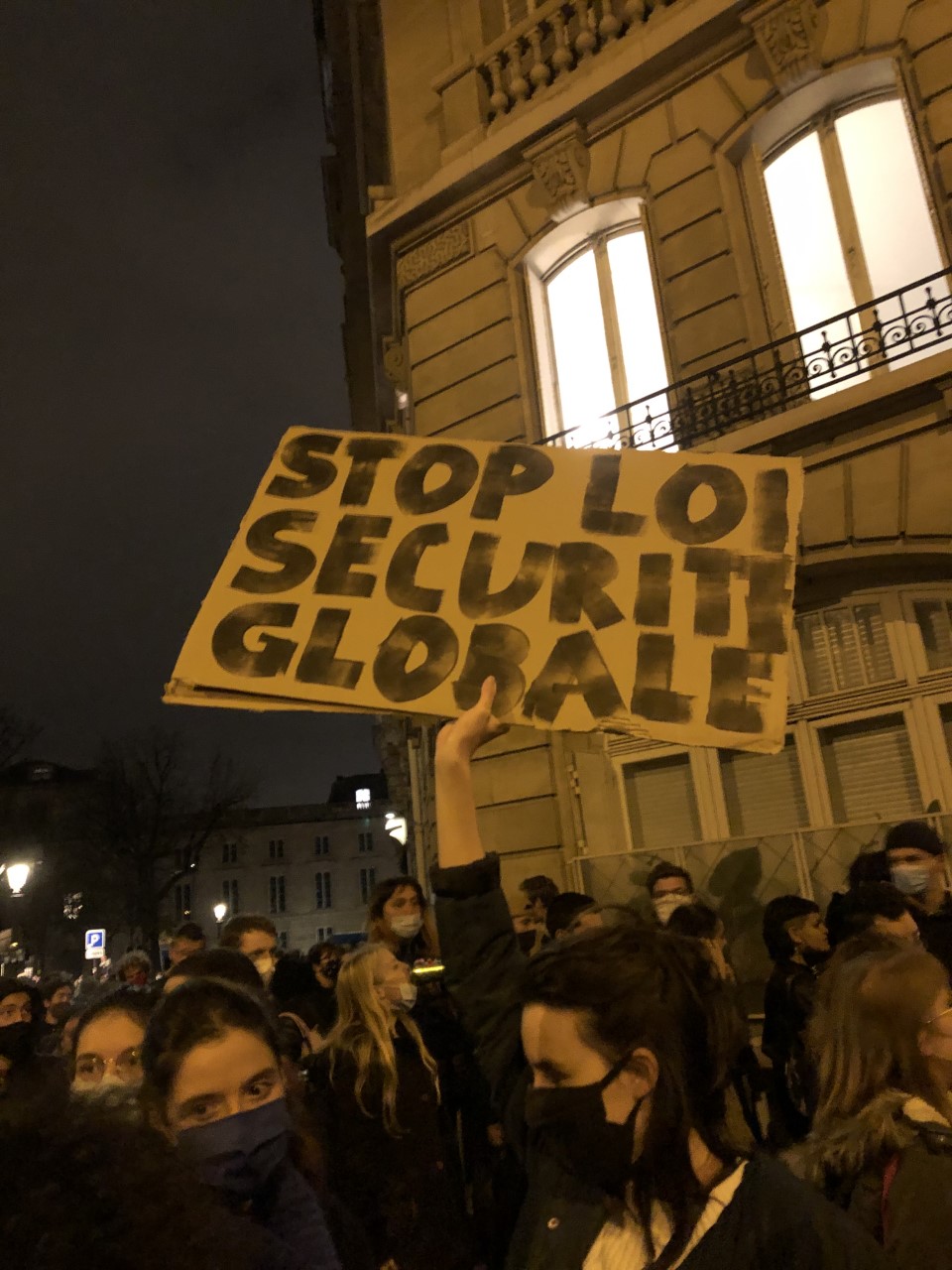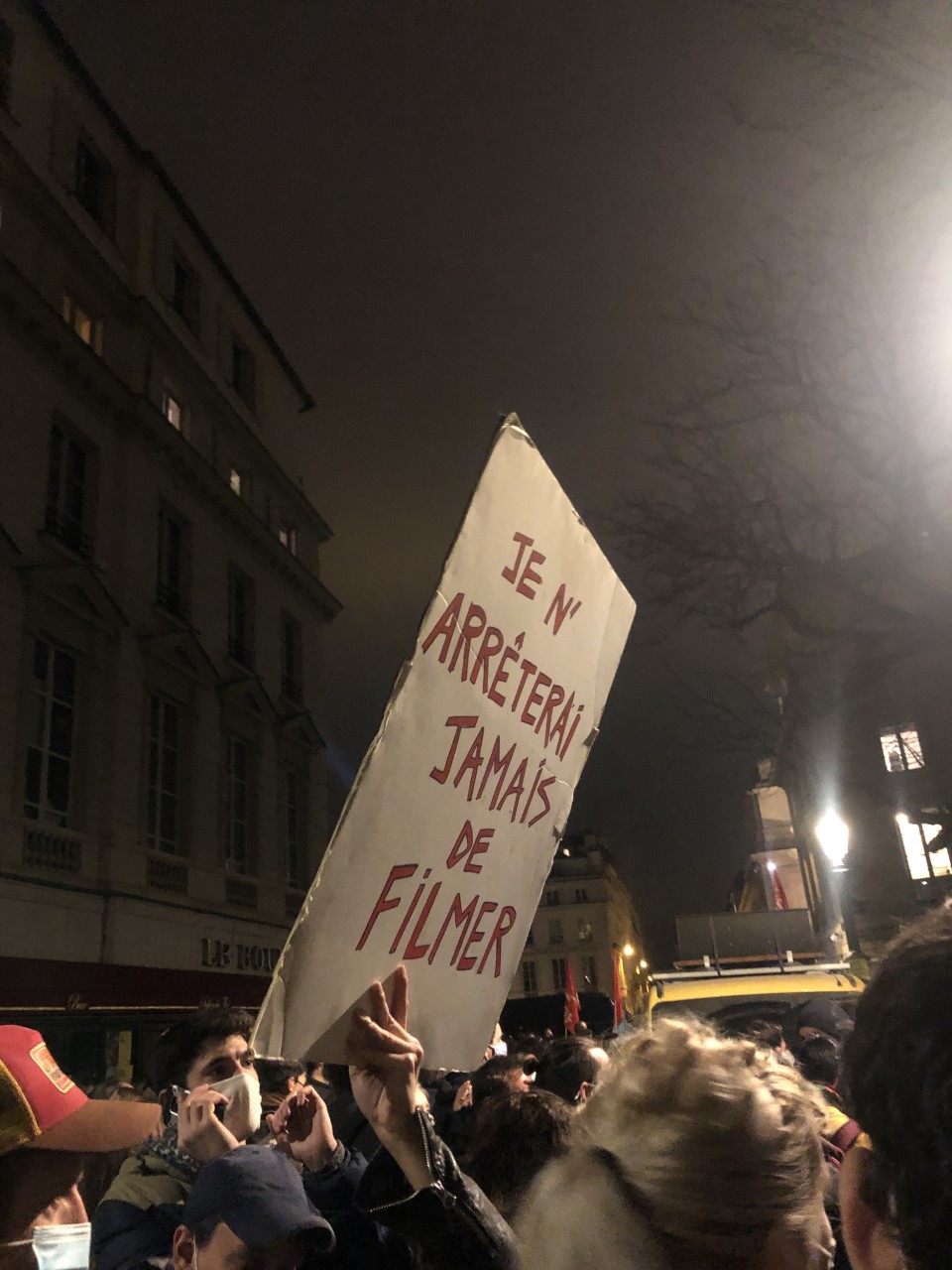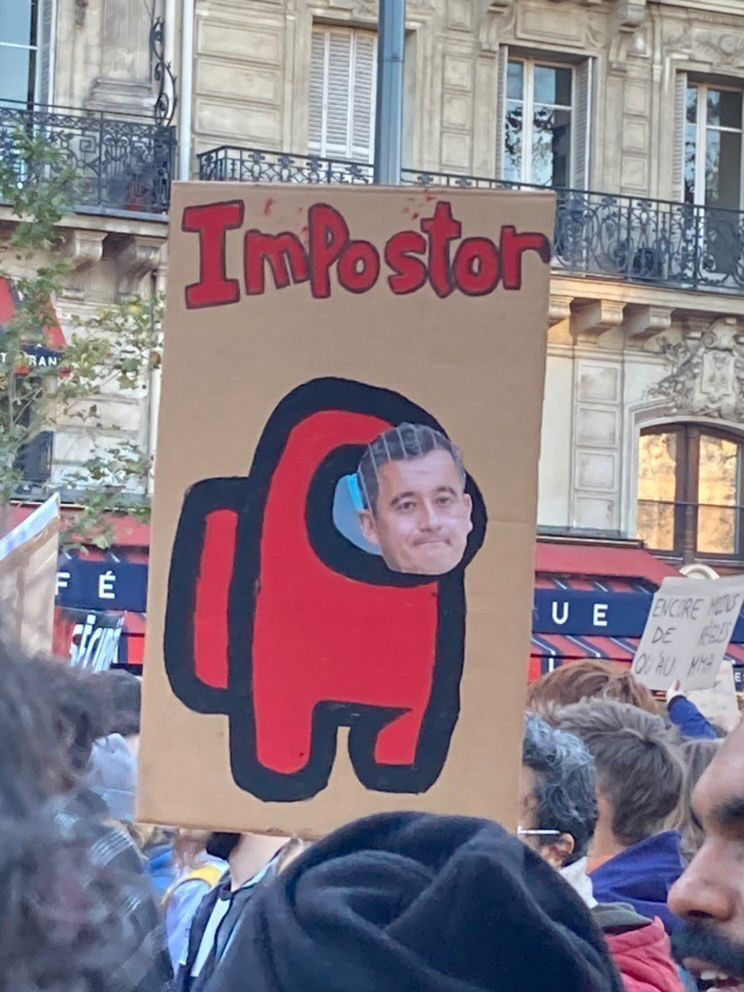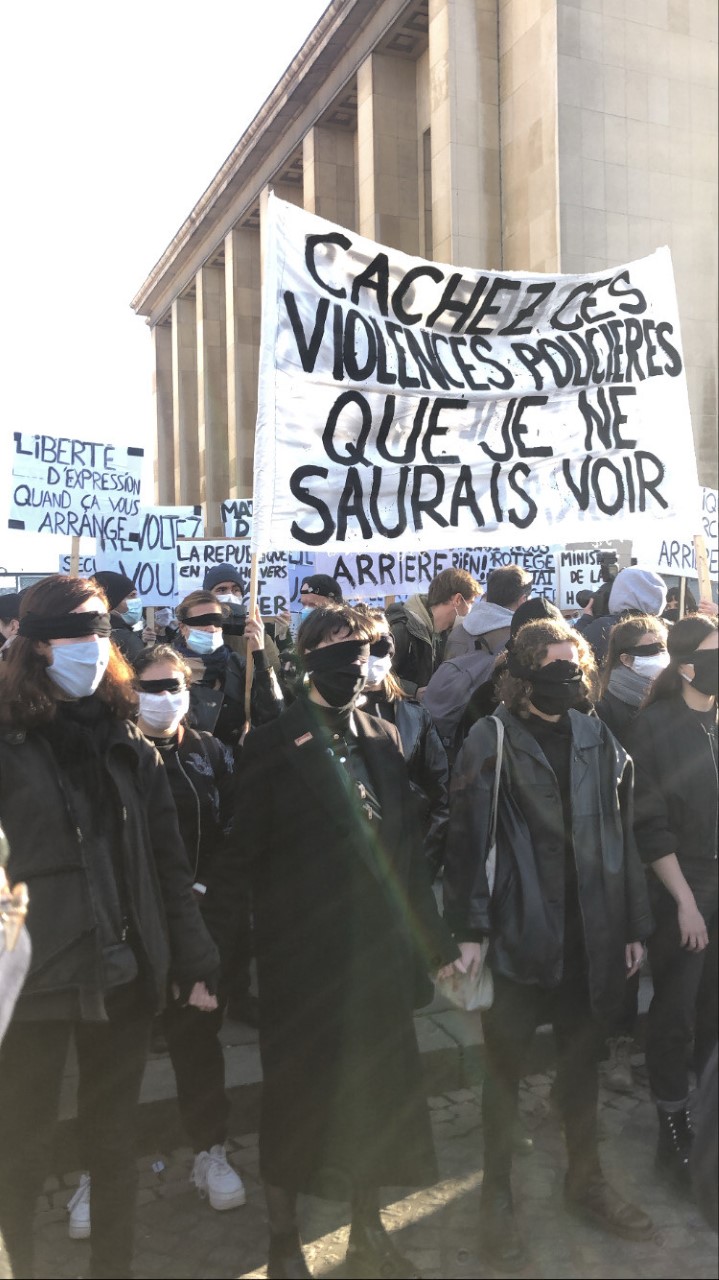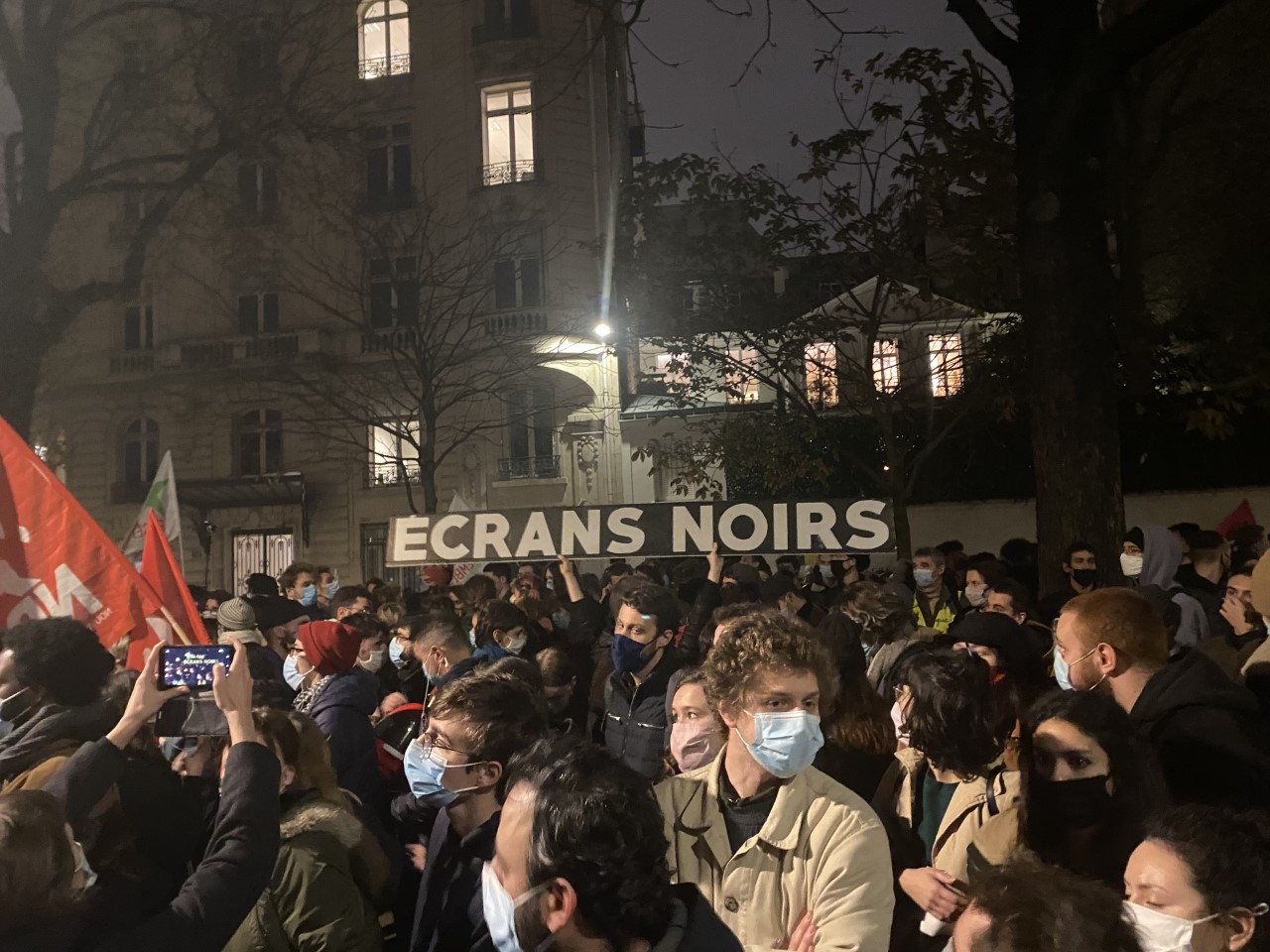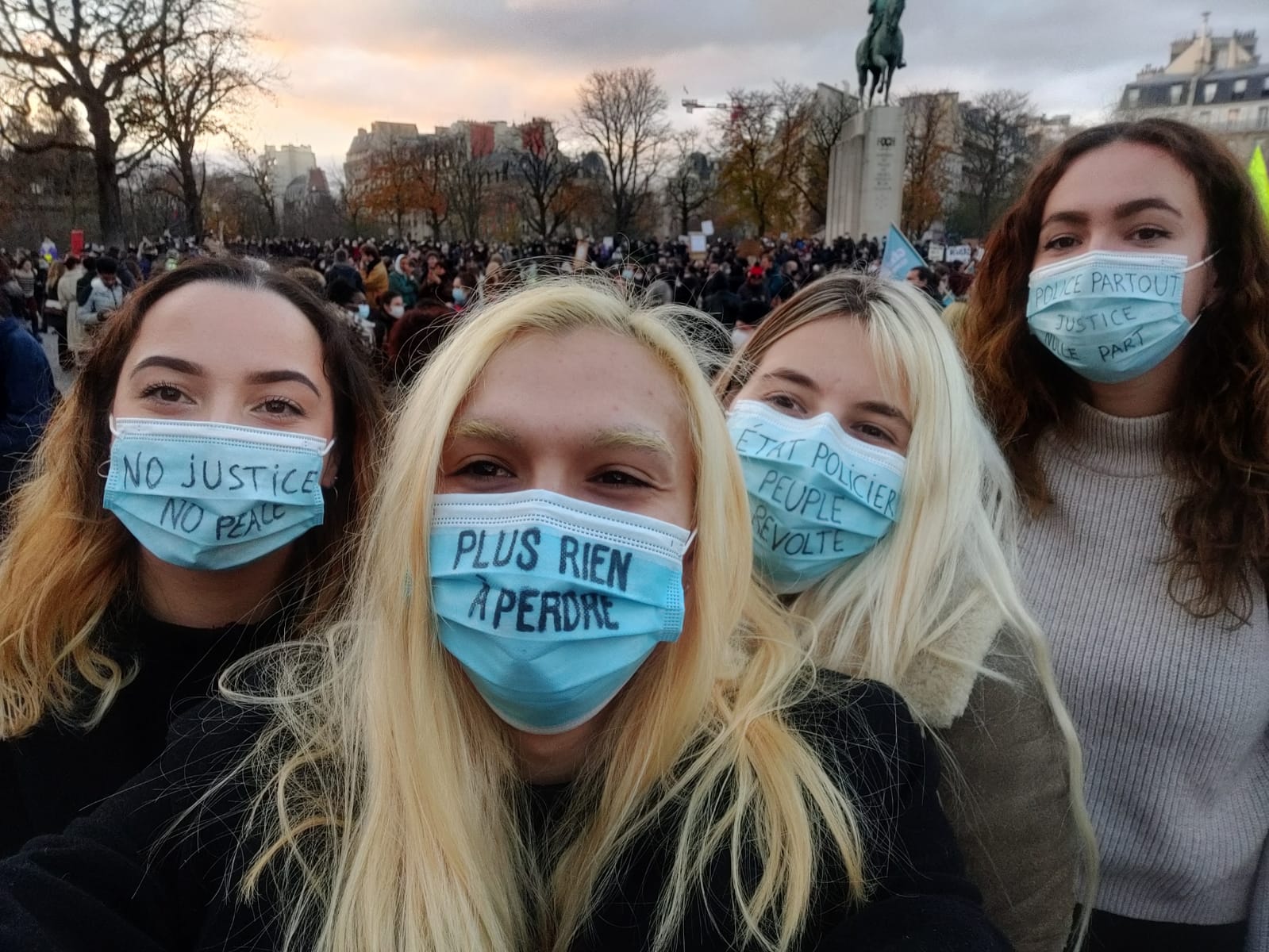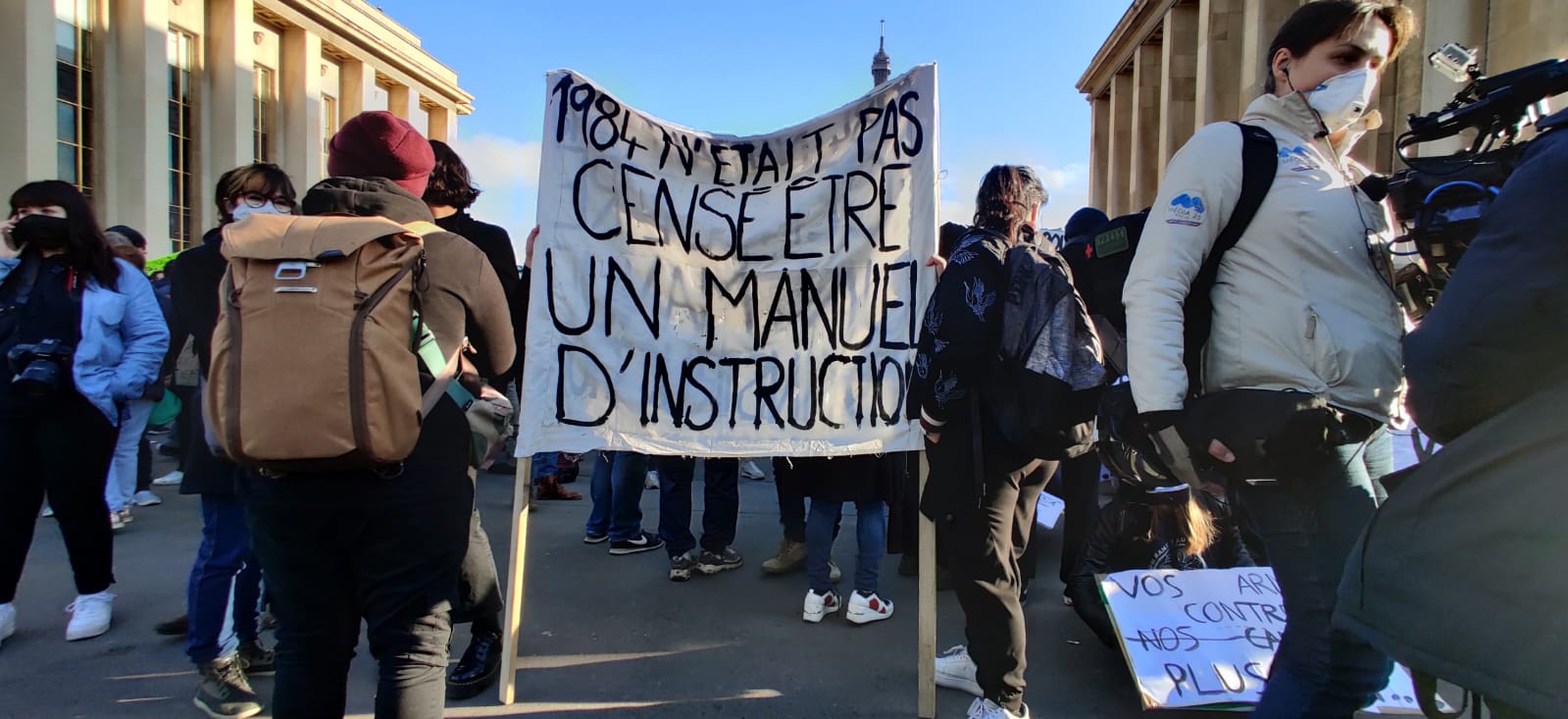France recently passed a “Global Security” bill which aims to protect the police. Blandine Morio looks into what it changes for national security as well as freedom of expression for French citizens.
The “Global Security” bill, is France still under the rule of law ?
France is facing many issues currently. In the midst of the COVID crisis, the country is being the target of many threats. However, this didn’t stop the La République En Marche (LREM) party (Macron’s party) from revealing one of the most liberticidal bills of the 21st Century. Many institutions within the state blew the whistle regarding this project especially the “defenders of rights” or the “State Council” and organisations such as “Reporters Sans Frontières”. Even the United Nations (UN) showed their concern towards the bill. In the past, France has been condemned by the European Court of Human Rights over many issues but specifically over the abuse of power of the police. Through this article, we will cover the bill, its purpose and stakes and the background of police brutality in France. France is known to be “the country of human rights”, but is it still the case after the proposition of this bill?
The statute: what is it and what does it imply ?
The first thing to observe about this bill is that it’s voted in fast track procedure. Usually, when a bill is presented, many organisations and institutions are consulted beforehand to bring their point of view and potential modifications on the bill. The fast track procedure prevents and marginalises parliamentary debate and it also dismisses the consultation from organisations. It very much sounds like they know this bill is problematic and they are trying to pass it as discreetly as possible. Thankfully this didn’t work.
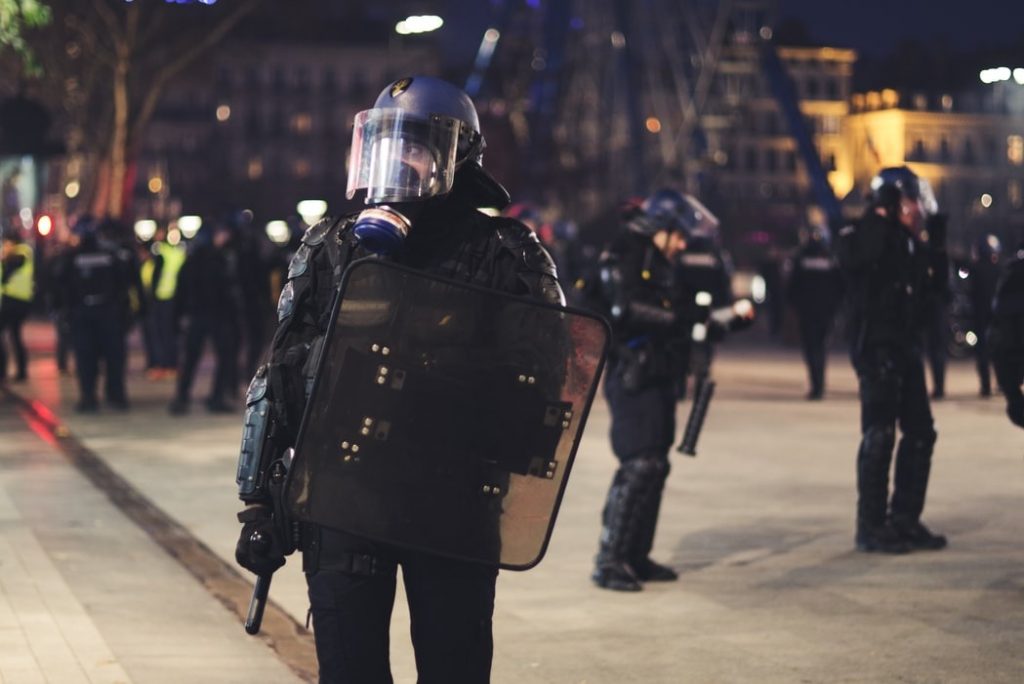
But what does this bill provide?
The most problematic is article 24, it introduces up to a year in prison and a maximum 45,000€ (£41,000) fine for “disseminating by any means or medium whatsoever, with the aim of harming their physical or psychological integrity, the image of the face or any other identifying element of an officer of the national gendarmerie when engaged in a police operation”. This means it is not possible for journalists, other independent live streamers or just a passer-by to film the police when they are “in operation” and with the intention to harm their physical or psychological integrity. It is also forbidden to share videos and pictures on public platforms (social media, blogs etc.). This article is going to be reviewed and rewritten by a commission, composed of magistrates and qualified specialists, created especially for this bill. But who decides what is harming someone’s integrity? If there is violence from the police against a person or demonstrators, will the journalists or live streamers be able to film that violence? Can the police stop them from documenting the event because they believe it harms them physically or psychologically? The article is very evasive on the subject which leaves it to the judge to interpret the text strictly or broadly.
On surveillance, there is article 21 that authorises policemen to film interventions with “mobile cameras”, which are directly transmitted to a command post controlled by the State. Article 22 authorises the deployment of drones to monitor public and private places, coupled with an authorisation for facial recognition. Mass surveillance controlled by the State, “Big Brother is watching you” has never been so real.
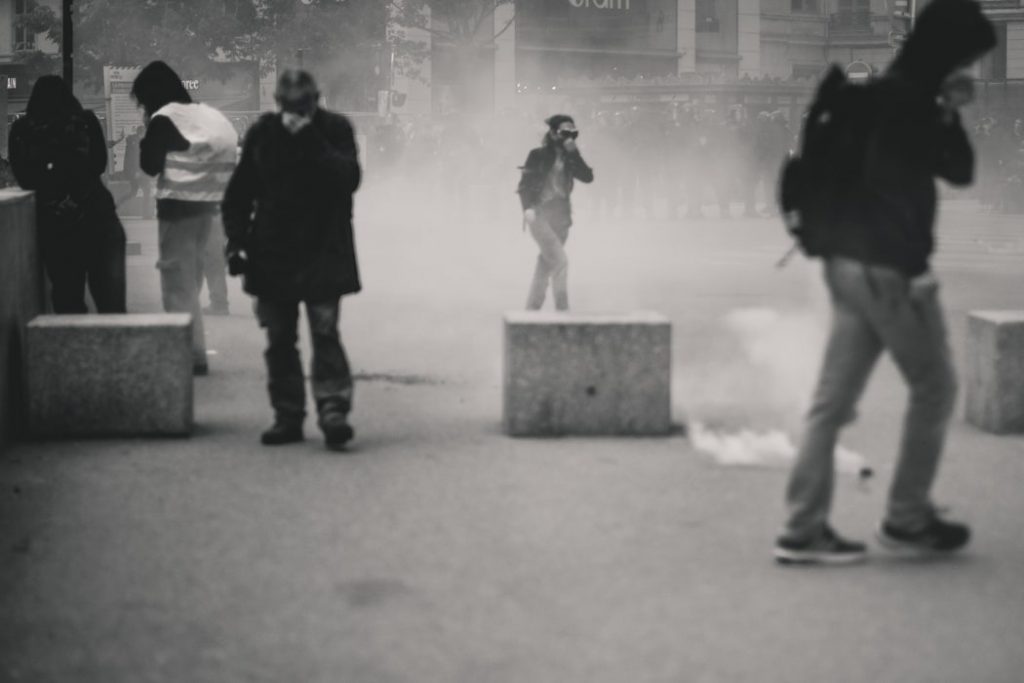
This bill just seems to add fuel to the already problematic background of police brutality in France.
You might have heard about the “Gilets Jaunes” demonstrations last year, the mayhem created by the demonstrations led to extreme police brutality. 22 people lost an eye and 5 lost a hand and many more injuries were caused by the police during these demonstrations. “Gilets Jaunes” was not the only demonstration that was dismantled by police brutality. The Benalla affair can also be cited as an example of the problem of police violence that was even protected by the government. Just look at this last month in France: at the beginning of November, students from Colbert Secondary School formed a blockade in front of the school to protest against the measures for Covid being loosely implemented in the school. The police did not hesitate to dismantle this blockade with the use of extreme violence and tear gas on barely protected students. No later than the 23rd of November, homeless migrants settled a camp on Place de la République as a form of protests and were violently ejected by the police; journalists, deputies and organisations covering the event were assaulted. Even the demonstration against the vote of this bill in Paris, and other cities, turned into violent repression by the police and drones were seen in the sky during demonstrations. On the 28th of November, a demonstration took place all over France to protest against the bill, gathering more than 500,000 people all over France including 46,000 in Paris, the pandemic and the lockdown currently happening may have considerably reduced the number of demonstrators but the ones present made sure to be wearing masks and respect protective measures.
But that is only on demonstrations, there are countless examples of people being violently killed by policemen. One of the main figures of the demonstration against this bill, Arié Alimi, happens to be the barrister defending Cedric Chouviat. Cedric Chouviat died from suffocation and fracture of the larynx caused by a chokehold made by policemen, on the video you can hear him saying “stop”, “I’m suffocating”. The incidents in Clichy-Sous-Bois, initiated by the death of Zyed and Bouna, two 17-year-olds that wanted to escape police control; protest sparkled all around the city on the night following their death. We won’t forget. Theo L, Adama Traoré, Steve Maia Caniço, Liu Shaoyao, Ibrahima Bah and many others are to be remembered for the sake of justice.
In all these cases, the pictures and videos taken by journalists and passers-by were decisive to dismantle the lies and coverups spread by the police.
This bill threatens the many liberties and rights provided by the French constitution, the equivalent of the rule of law. Right to information, the right to privacy, liberty of expression, liberty of the press and liberty to demonstrate are threatened by the “global security” bill. For a party that was elected to prevent the far-right party to be elected to the presidency and a president that claims to want a “humanist republic”, they do seem to forget the basic human rights stated in the Constitution. The so-called “country of human rights” is choosing to close their eyes on the problem of police brutality instead of facing it. Arié Alimi resumed this bill as a way for the State to “see without being seen” and clearly shows the thin ice on which the LREM party is acting.
On the global scale, France is quite influential on the international level and if such a bill is passed in France what example does it give to other democratic states? If one of the most powerful countries in the world passes this bill it can have a detrimental butterfly effect in countries that also have an issue with police violence. Even in more repressive countries like China, it is not forbidden to film the police which clearly shows the drift France is on.
